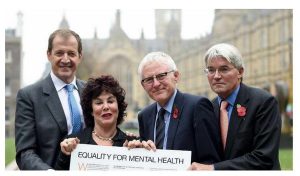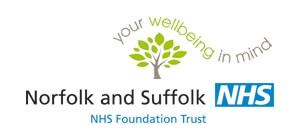Norman Lamb MP – My son’s struggle with OCD

Norman Lamb – Via The Guardian
When our oldest son, Archie, was 16, he was clearly very unhappy. He eventually told us just how distressed and troubled he had become. We got a referral to our local children and adolescent mental health services (CAMHS) and a diagnosis of obsessive-compulsive disorder followed.
Archie has subsequently revealed that he’d had disturbing thoughts for two or three years prior to finally talking about it. It is hard to imagine how tough it must be for a teenager, struggling to understand what is happening to them and yet too embarrassed to talk about it. I still remember Archie asking us: “Why am I the only one who’s going mad?” This is really difficult for a teenager to grasp.
Public figures sign letter seeking equality for mental health
Obsessive-compulsive disorder can be an incredibly disabling condition – rated as one of the top 10 debilitating illnesses by the World Health Organisation. It is often unhelpfully trivialised. People talk about being “a bit OCD” – keeping things in order, obsessive about tidiness, or checking things. But the real illness is very different.Affecting about 2% of the world’s population, it involves persistent and unwanted disturbing thoughts and fears. These fears are often completely irrational – perhaps that you could kill someone. The sufferer tries to escape from them through compulsions or rituals. Just imagine going through that as you struggle with growing up.
The response from CAMHS was supportive, and Archie did receive treatment. But sadly the condition stubbornly persisted. He was put on medication, but it seemed to have little effect. We later discovered that the dose prescribed was at a level which would have no effect on OCD.
We tried again to get Archie referred for cognitive behaviour therapy. By this time he was eligible for adult services and we were told that the wait would be up to six months – despite his condition being “moderate to severe”. We felt desperate. We couldn’t wait. You do what you can for your child. We paid for treatment. But I am acutely aware that this isn’t an option for very many people. This is intolerable.
About 75% of children and young people with mental health problems get no support.
Determined to understand more about the condition, I contacted Paul Salkovskis, a leading expert, who was then at the Maudsley hospital in London. I came away feeling inspired by the message that, with access to proper treatment, there was a real prospect of recovery or substantial improvement. I asked the mental health trust in Norfolk where we live if Archie could be referred there. Sorry, came the answer: the right to choose where you get treatment did not apply to mental health – it was excluded from the legal right of choice.How can you possibly justify such unequal treatment? Much longer waiting times, and you get what you are given. In government, I ended that exclusion of the right to choose where you get treated.
My insight from our experience is of how mental ill health, left untreated, robs the person of happiness and has a profound impact on families. Archie has loads of talent – he was on the Norwich City football academy for five years. He left school at 17 with a friend and set up a record label, operating on a shoestring. At the age of 21 they had two number one hits with the artist Tinchy Stryder. Yet despite all this, I know his teenage and young adult years were incredibly difficult. At their moment of glory, when they topped the charts, Archie was not celebrating but in a dark place, a hood pulled over his head, deep in his own thoughts. There have been very dark periods. Thankfully, Archie is in a much better place now, doing really well and working as a consultant to record label. Very often great strides can be made, provided treatment and support are there.
10 steps to mental health equality
Hannah Jane ParkinsonAll this strengthens my determination to fight for change. The truth is that there is discrimination at the heart of the NHS. People with physical health problems benefit from maximum waiting times – the four-hour target in A&E, cancer standards including a consultation within two weeks of referral by your GP, and a maximum of 18 weeks from referral for any operation. Yet mental health has been excluded from these standards. Until this April there had been none. I introduced the first maximum waiting times – for early intervention in psychosis and for accessing psychological therapies. But rights still needs to be more comprehensive. We have to establish the principle that every person should get access to treatment on time, regardless of whether it is a physical or a mental health problem.
So many people get no help at all. About 75% of children and young people with mental health problems get no support. This is morally wrong. The economic case for investment in mental health is overwhelming. Mental ill health costs the economy as much as £100bn a year.
So my plea to the government is this: respond to our campaign. Provide the extra investment in this spending review. The impact on the wellbeing of our country could be profound and the government will find that it saves money in the long run. An approach which focuses on intervening early, stopping the deterioration of conditions, aiming for recovery and getting people back to work is not only the right thing to do; it will reap dividends for the government – and help families all over the country like mine.

